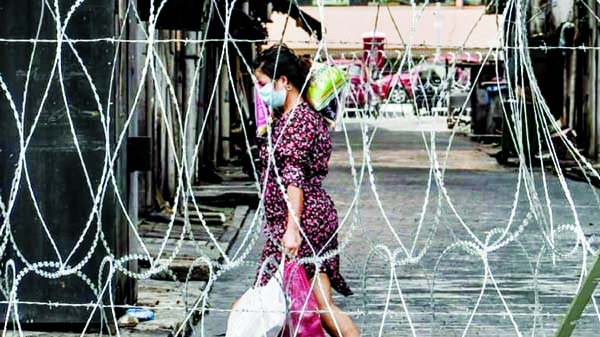
Health ministry says detention centres ‘high risk’ areas after spike in cases following series of raids during lockdown
Emily Fishbein and Jaw Tu Hkawng
Despite strict movement restrictions that have helped contain the coronavirus, Malaysia finds itself facing a surge of cases in overcrowded detention centres that coincided with a series of raids last month in which more than 2,000 undocumented migrants were picked up.
“We have identified detention centres as a high-risk area,” Dr Noor Hisham Abdullah, the director-general of the Ministry of Health, said at a news briefing on May 26.
More:
Fear of arrest, not coronavirus, keeps refugees at home in Malaysia
Malaysia detains undocumented migrants, refugees amid coronavirus lockdown
Time running out to protect refugees from coronavirus’ spread
Some 35 cases were identified at a detention centre near Kuala Lumpur on May 22. Four days later, the number had jumped to 227 across three sites, and by May 31, had reached 410 across four sites.
“These raids under the pretence of stopping the spread of COVID-19 have only served to further spread the virus,” Beatrice Lau, Head of Mission for Doctors Without Borders (Medecins Sans Frontieres, or MSF) in Malaysia told Al Jazeera. “The authorities had been warned about the risk of infection in detention centres many times.”
Authorities began the raids on May 1 in areas within designated COVID-19 “red zones” placed under “enhanced” restrictions enforced by the police and military.
Malaysia defines red zones as districts with more than 41 cases of coronavirus within a two-week period, but in areas where worrying clusters have emerged, a stricter lockdown is imposed with razor wire rolled out to seal off the area and prevent residents from going in or out.
Malaysia ‘detains migrants, refugees’ amid coronavirus lockdown (2:37)
The raids triggered a swift reaction from Malaysia’s human rights commission, as well as health and rights groups, who warned of the risks of detaining migrants in overcrowded facilities, and of eroding trust among migrants asked to come forward for testing or treatment.
SOURCE: Al Jazeera News

